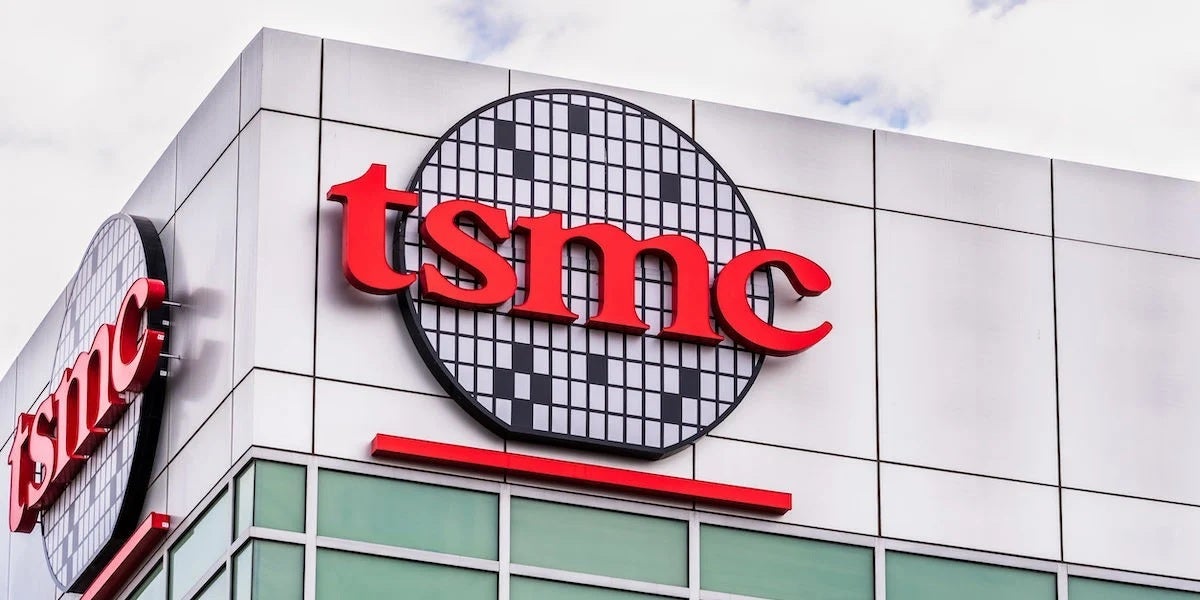Qualcomm might shift some Snapdragon 8 Gen 1 production to TSMC from Samsung

Nearly one week ago we told you that Qualcomm had confirmed that the Snapdragon 8 Gen 1, the new name for its flagship chipset, will be manufactured by Samsung using its 4nm process node. In the past, Qualcomm has employed both Samsung and TSMC to produce its Snapdragon APs. For example, 2017's Snapdragon 835 SoC was made by Samsung using its 10nm FinFET process node and contained 3 billion transistors.
Qualcomm might shift some Snapdragon 8 Gen 1 production to TSMC from Samsung
The Snapdragon 845 SoC, released in 2018, was built by Samsung using its 10nm FinFET process node. In 2019, Qualcomm returned to TSMC which used its 7nm process node to build the Snapdragon 855 and Snapdragon 855+ which both contained 6.7 billion transistors inside.

Qualcomm might call on TSMC to build some of its flagship Snapdragon 8 Gen 1 chipset
2020's Snapdragon 865 and 865+ were manufactured using TSMC's second-generation 7nm process and were equipped with 10.3 billion transistors. This year, for the first 5nm Snapdragon chips, Qualcomm returned to Samsung for the Snapdragon 888 and Snapdragon 888+. Each chip contains 10 billion transistors. For next year's Snapdragon 8 Gen 1, Samsung is expected to use its 4nm process node to make the chips.
But according to SamMobile, there might be a change in the plans. According to today's report, Qualcomm is not happy with the low yields that Samsung's 4nm fabrication facilities are delivering. As a result, Qualcomm could, if not satisfied, choose to move some of its Snapdragon 8 Gen 1 production to TSMC.
TSMC is the world's largest independent foundry and makes chips for fabless chip designers like Apple, MediaTek, AMD, NVIDIA, and others. It also might be producing some 3nm chips for Intel which does have its own foundry but is unable to deliver 3nm chips at this stage.
Are there are any noticeable differences between chips built by TSMC and those put together by Samsung? Some industry experts agree that TSMC's chip fabrication process is superior to Samsung's when it comes to size and power efficiency. If Qualcomm does decide to split production of the Snapdragon 8 Gen 1, it could result in some devices exhibiting performance and/or power efficiency differences with other devices even if they both use the same chipset.
This might remind you of 2015's #chipgate. That year, Apple had both TSMC and Samsung build the A9 SoC used with the iPhone 6s and iPhone 6s Plus. Even though Samsung built the chip using its 14nm process while TSMC's version was manufactured using the 16nm process node, it was the latter's A9 that prevailed on benchmark tests.
Apple once used TSMC and Samsung to produce the A9 chip for the iPhone 6s series
Still, Apple said that the difference in the battery life produced by both variants of the A9 was no more than 2% to 3%. Consumer Reports did its usual neutral testing and found that the difference was less than 2%. Others ran their own experiments and found that the TSMC chip delivered an appreciable improvement in battery life from the Sansung variant.

Apple used A9 chips from TSMC and Samsung with the iPhone 6s
Back then, Chipworks said, "For Apple to go through all the trouble of dual-sourcing a custom designed part and launching on day one with both parts, suggests major sourcing problems. For cost and power reasons, there is little reason to run a larger die, unless the smaller die was not available at the right volumes."
Now it looks as though Qualcomm has something of a similar situation although, unlike Apple's #chipgate, both foundries will be using a similar process node. The 4nm process will also be used by Samsung on its homegrown Exynos 2200. So if Sammy's foundry unit is having yield problems with the Snapdragon 8 Gen 1, there is a good chance that the Exynos 2200 is having the same problem.
If this proves to be the case, the Samsung Galaxy S22 series might end up being hard to find. And don't forget that Samsung has a goal of unseating TSMC at the top of the global foundry business by 2030. Still, first things first. Samsung must improve the yields it is obtaining with its 4nm process node or else TSMC may get some business that it wasn't counting on receiving.












Things that are NOT allowed: